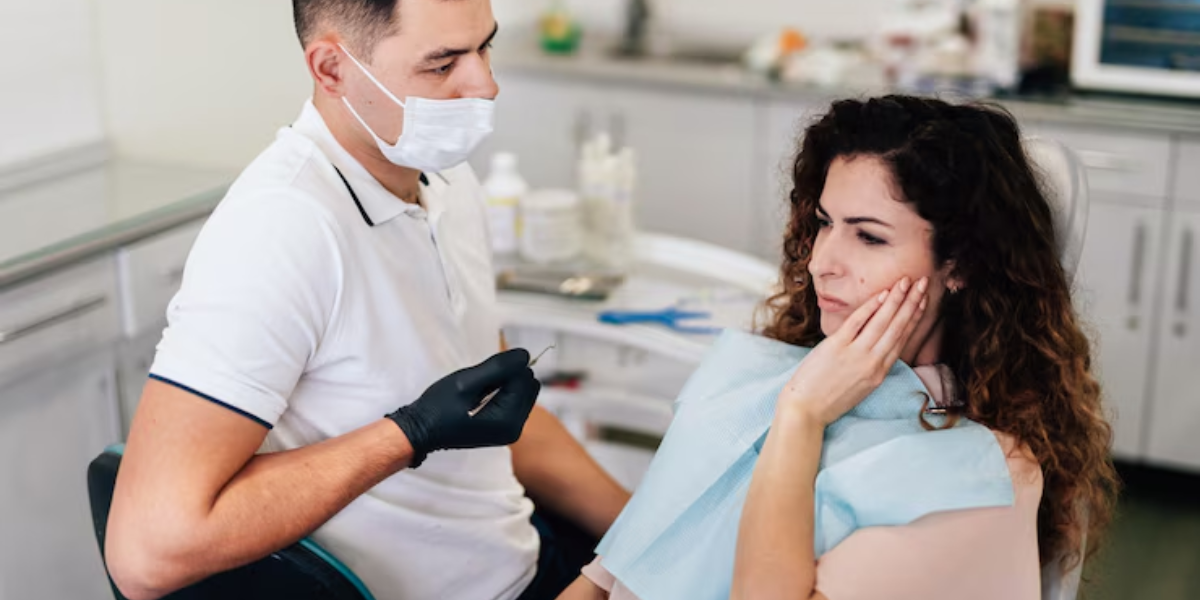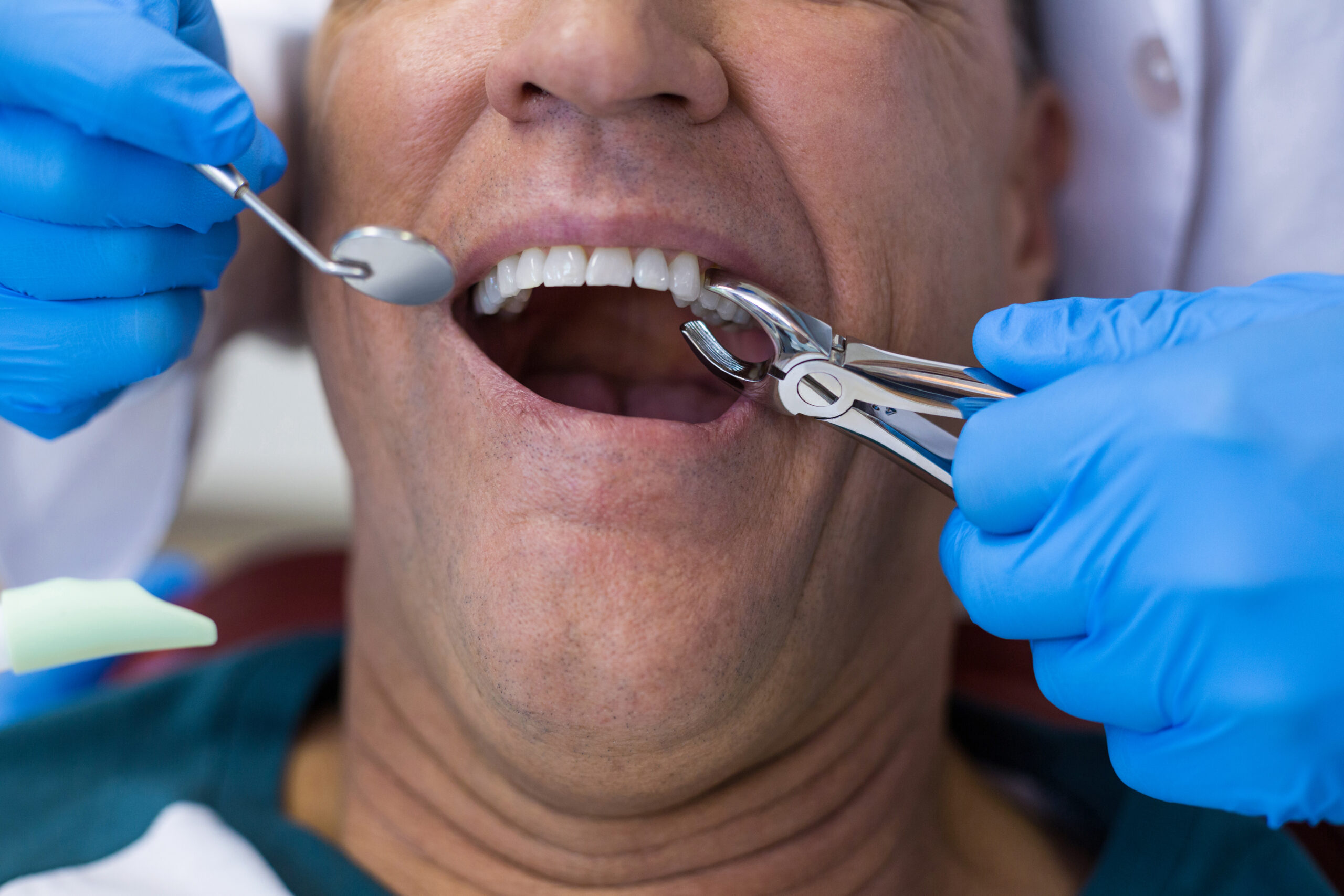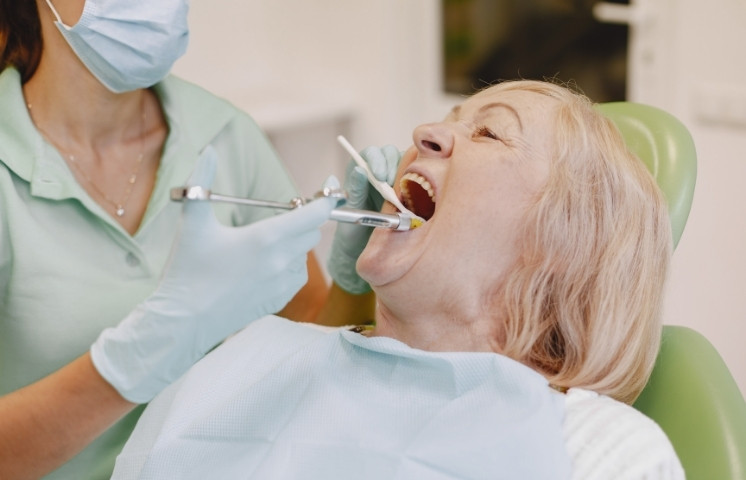New Patients Welcome!

Dental emergencies are unexpected, often painful situations that require immediate care to prevent complications. Whether it’s a sudden toothache or an accident that leaves you with a broken tooth, knowing how to handle these situations is crucial. In many cases, fast action can mean the difference between saving and losing a tooth. This blog will highlight the most common dental emergencies and provide practical steps on how to manage them until you can see an emergency dentist.
What is a Dental Emergency?
A dental emergency involves issues that require immediate attention to alleviate pain, prevent infection, or save a tooth. Knowing when to seek urgent care is essential to maintaining your dental health. Situations like severe pain, tooth loss, or dental trauma often require the expertise of an emergency dentist.
1. Severe Toothache: Causes and Immediate Relief
Toothaches are one of the most common reasons people seek emergency dental care. The pain can range from mild discomfort to severe throbbing, and it can be caused by several issues like cavities, gum disease, or infection.
Causes of a Toothache:
- Tooth decay
- An abscess (infection)
- Gum disease
- Trauma to the tooth
- A damaged or infected filling
How to Handle a Toothache:
- Rinse with warm salt water: This can help clean the area and reduce inflammation.
- Floss: Sometimes, food particles stuck between the teeth can cause discomfort, so flossing may help.
- Use a cold compress: Apply a cold compress to the outside of your cheek to reduce swelling and numb the pain.
- Take over-the-counter pain relievers: Non-prescription painkillers like ibuprofen can alleviate discomfort until you can visit an emergency dentist.
When to Seek an Emergency Dentist: If the pain lasts more than a day or two, if it’s severe, or if it’s accompanied by fever, swelling, or a foul-tasting discharge, you should see an Emergency Dentist West Palm Beach immediately.
2. Chipped, Cracked, or Broken Teeth: Quick Actions Matter
A chipped or broken tooth is not only painful but can also expose the inner layers of the tooth, leaving it vulnerable to infection.
Causes of a Chipped or Broken Tooth:
- Biting down on something hard
- Accidents or trauma
- Decay weakening the tooth
How to Handle a Chipped or Broken Tooth:
- Rinse your mouth with warm water to clean the area.
- Save any pieces of the tooth: If possible, store the pieces in milk or saline solution until you can see your emergency dentist.
- Apply gauze to any bleeding areas: If there is bleeding, apply pressure with gauze.
- Cover sharp edges: If the broken tooth has sharp edges, cover it with dental wax or sugarless gum to protect your tongue and cheek.
When to See an Emergency Dentist: Immediate care is essential. Your emergency dentist will assess the damage and determine the best course of treatment, which may include bonding, a crown, or in severe cases, extraction.
3. Knocked-Out Tooth: Timing is Everything
Losing a tooth due to trauma is a dental emergency that requires quick action. The faster you respond, the better the chances of saving the tooth.
How to Handle a Knocked-Out Tooth:
- Handle the tooth by the crown: Avoid touching the root to prevent damaging cells that are needed for reattachment.
- Rinse the tooth: Rinse it gently with water without scrubbing it.
- Reinsert the tooth if possible: Try to place the tooth back into its socket and hold it in place with a clean cloth.
- Store the tooth properly: If reinsertion isn’t possible, store the tooth in milk, saline solution, or your own saliva.
- Act fast: You should see an emergency dentist within 30 minutes for the best chance of saving the tooth.
4. Abscess: A Serious Infection
A dental abscess is a severe infection that forms around the root of a tooth or in the gums. It can cause excruciating pain and swelling and may lead to systemic infections if left untreated.
Causes of a Dental Abscess:
- Untreated cavities
- Gum disease
- Trauma to the tooth
- Poor oral hygiene
Signs of a Dental Abscess:
- Severe, throbbing tooth pain
- Swelling in the face, cheek, or gums
- Fever
- A foul taste in the mouth
- Difficulty swallowing
How to Handle a Dental Abscess:
- Rinse with warm salt water: This can help draw the infection out and provide some relief.
- Use over-the-counter pain relievers: Medications like ibuprofen can reduce inflammation and manage pain temporarily.
- Cold compress: Applying a cold compress to the cheek can reduce swelling.
When to See an Emergency Dentist: A dental abscess is a serious condition that requires immediate treatment. Your emergency dentist may need to drain the abscess and prescribe antibiotics to clear the infection.
5. Lost Filling or Crown: Temporary Fixes
A lost filling or crown can expose the affected tooth to bacteria, leading to sensitivity or infection. While this is usually not as urgent as other dental emergencies, it still requires prompt attention.
How to Handle a Lost Filling or Crown:
- Rinse your mouth with warm water to clean the area.
- Use dental cement: Over-the-counter dental cement can temporarily seal the exposed area.
- Avoid chewing on that side: Protect the exposed tooth from further damage by avoiding food contact.
- Preserve the crown: If you have the crown, keep it safe and bring it to your emergency dentist.
When to Visit an Emergency Dentist: Schedule an appointment with your emergency dentist as soon as possible to replace the filling or crown. Delaying treatment can lead to further damage to the tooth.
6. Broken Braces Wires: Quick Solutions
Braces are generally secure, but broken wires or brackets can cause discomfort and even injury to the soft tissues of your mouth.
How to Handle Broken Braces:
- Use orthodontic wax: Cover any sharp wires with orthodontic wax to protect your cheeks and tongue.
- Use a pencil eraser: If a wire is poking into your gums or cheek, use the eraser end of a pencil to gently push the wire back into place.
When to Visit an Emergency Dentist: While broken braces aren’t always an urgent issue, schedule a visit to your emergency dentist or orthodontist to get them repaired.
7. Soft Tissue Injuries: Managing Cuts and Tears
Injuries to the soft tissues of the mouth, such as the tongue, cheeks, or gums, can occur from accidents, falls, or biting down on something sharp. While these injuries can result in heavy bleeding, they are usually treatable.
How to Handle Soft Tissue Injuries:
- Rinse your mouth with salt water to clean the wound.
- Apply pressure to stop the bleeding: Use gauze or a clean cloth to apply pressure for 10-15 minutes.
- Use a cold compress: This can reduce swelling and bleeding.
- Seek medical attention if necessary: If the bleeding doesn’t stop or the injury is severe, visit your emergency dentist.
8. Object Stuck Between Teeth: Gentle Removal
Getting food or an object stuck between your teeth can be painful and irritating, but it is often manageable at home.
How to Handle Objects Stuck Between Teeth:
- Floss gently: Use dental floss to remove the object, being careful not to push it further into the gums.
- Avoid sharp objects: Never use sharp items like toothpicks or pins to remove the object, as this can damage your gums or teeth.
When to Visit an Emergency Dentist: If flossing doesn’t remove the object or the discomfort persists, schedule a visit to your emergency dentist to prevent further issues like infection or gum damage.
How to Prevent Dental Emergencies
Preventing dental emergencies starts with good oral hygiene and protective measures. Here are some tips to reduce your risk:
- Brush and floss regularly: Good oral hygiene can prevent many of the common causes of dental emergencies.
- Wear a mouthguard: If you play sports or grind your teeth at night, a custom mouthguard can protect your teeth from damage.
- Avoid chewing on hard objects: Refrain from biting down on hard items like ice, pens, or hard candy.
- Visit your dentist regularly: Routine check-ups can catch potential problems early before they turn into emergencies.
Dental emergencies are unpredictable and can be painful, but knowing how to handle them can make a big difference in saving your teeth and preventing further damage. Always remember that swift action is crucial, and visiting an emergency dentist promptly can ensure the best outcome for your oral health. Whether it’s a knocked-out tooth, a severe toothache, or a dental abscess, being prepared with the right knowledge can help you stay calm and manage the situation effectively.





